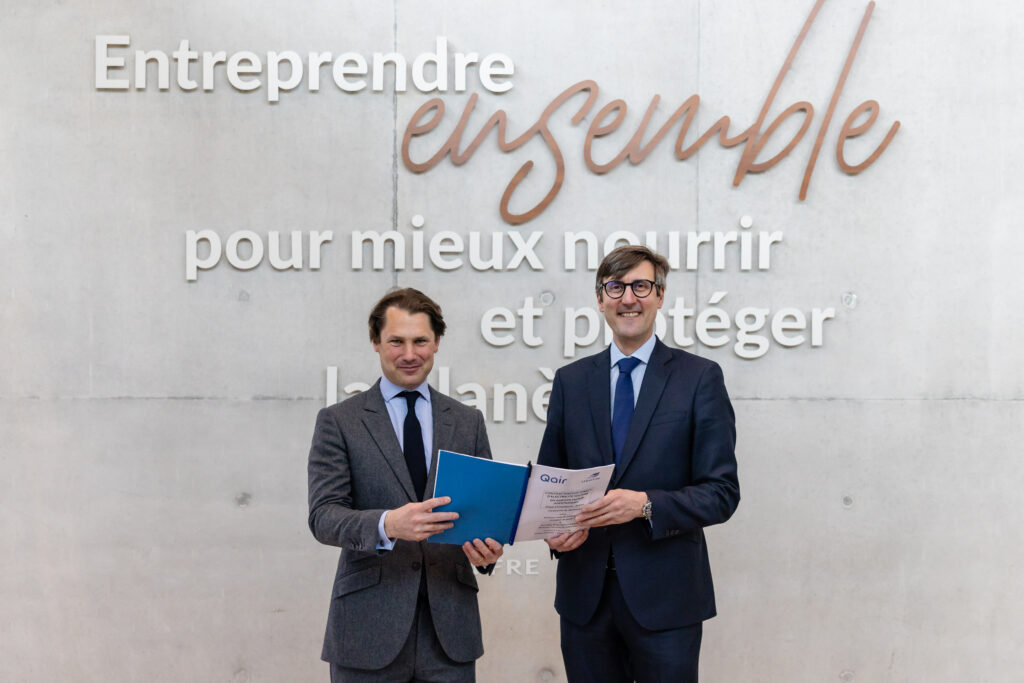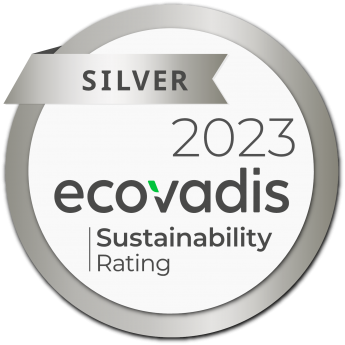Lesaffre, a key player in fermentation and micro-organisms for over 170 years, and Qair, an independent renewable energy company , have signed a contract for the direct purchase of renewable electricity (CPPA) from an agrivoltaic plant.
Covering a forecast annual purchase volume of around 34 GWh, this additional CPPA provides for the supply of green electricity from an agrivoltaic project (synergy between agricultural production and photovoltaic energy) developed by Qair in the Hauts-de-France region. It will enable Lesaffre to continue decarbonizing its scope 21 and thus accelerate its energy transition by increasing the proportion of renewable energy in its energy supply.
With construction starting in 2025 and operation scheduled for 2026, the plant will avoid the equivalent of around 630 tonnes of CO2 emissions per year, and inject 68 GWh of green electricity per year into the French power grid.
«We’re delighted to be taking part in the decarbonization of Lesaffre, a company that shares our commitment to local community support. Through agrivoltaics, Qair aims to support farmers, protect their land, and secure their production. This is why we engage in co-financing with farmers and local partners to provide comprehensive support to encourage ecological and solidarity transition through renewable energies” says Louis Blanchard, President of Qair.
A new CPPA that confirms the decarbonization trajectory of Lesaffre sites
After a first CPPA signed in 2023 to supply green energy to the Group’s largest yeast plant in Marcq-en-Baroeul, Lesaffre is taking another step towards decarbonizing its production sites in France by signing this second CPPA, which will supply green energy to the Biospringer by Lesaffre site in Maisons Alfort, near Paris. This second signature is in line with Lesaffre’s ongoing commitment to reducing its carbon footprint and energy consumption. Among the projects underway are the installation of a biomass plant at the LIS by Lesaffre site in Cérences (Normandy), the installation of a wind turbine at the Algist Bruggeman site in Belgium, and the signing in November 2022 of a 15-year partnership with another player in the energy sector for the design, financing, construction, operation and maintenance of a waste heat recovery unit at the Lesaffre site in Marcq-en-Barœul. As part of this drive to decarbonize its production sites, the Group is currently considering a number of investments in renewable energies.
“The signing of this second CPPA is the translation of our commitment to reduce our carbon footprint. At Lesaffre, we are committed to sustainable growth and respect for the environment through our products and production processes. By signing up to Qair for 18 years, we are taking another step towards decarbonizing our production sites and continuing to work together to better feed and protect the world of tomorrow”, adds Brice-Audren Riché, Lesaffre’s CEO.
In 2023, Lesaffre was awarded the EcoVadis Silver Medal, the global reference for CSR assessments. This distinction places the Group in the top 20% of companies assessed worldwide.
Sheep farming under solar panels
The agrivoltaic project has been tailored to adapt to the needs of the farmers with whom pre-contracts have been signed, paving the way for the agreements that will materialize with building permits.
Like Lesaffre, which is committed to working with its partners to help them adopt sustainable practices, Qair designs its projects to serve local players, from the agricultural world to local authorities and industrial purchasers of green electricity, to meet all the energy needs of these ecosystems.
Agrivoltaics, an energy solution for agricultural production and land preservation
Today, the agricultural sector is facing a number of challenges due to climate change and population growth: land speculation, agricultural decline, loss of biodiversity and artificialization of farmland. Agrivoltaics is a strong lever in response to these major challenges, enabling a symbiosis between agricultural economic activity (livestock or crops) and photovoltaic installations. Each brings added value to the land and to those involved in the project:
- Economic redistribution of electricity sales to ensure the continuity and sustainability of farms;
- Shading for plant development and animal welfare in the context of climate change;
- Provision of farmland for the energy transition.
1 Scope 2: refers to all indirect emissions from electricity consumption and heating and/or cooling networks.



